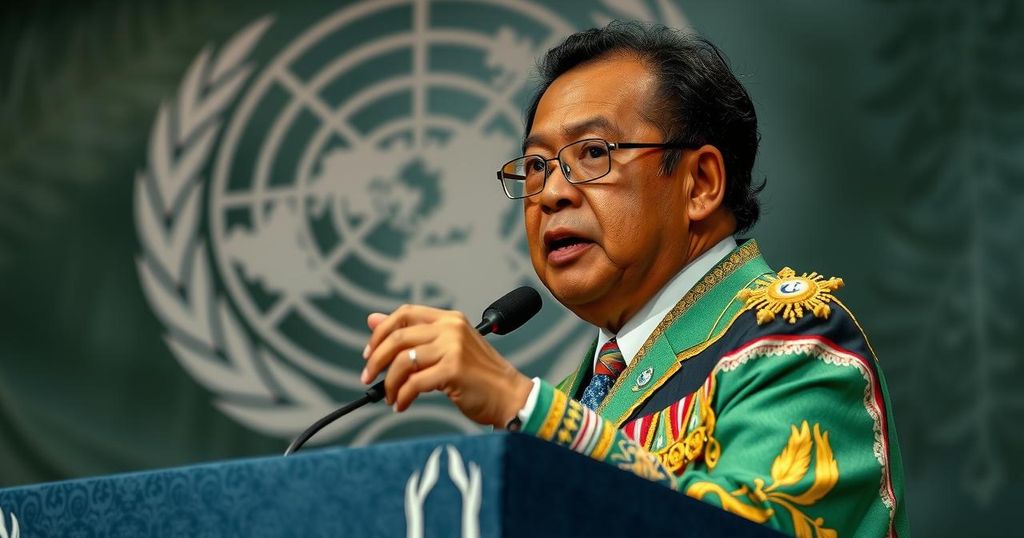Prime Minister James Marape of Papua New Guinea has pledged to return to UN climate talks after boycotting this year. He called for a stronger focus on forest conservation in climate discussions and asserted that countries with high carbon emissions should fund such initiatives. Papua New Guinea plans to attend COP30 in Brazil and support Australia’s COP31 bid if forestry issues are prioritized.
Prime Minister James Marape of Papua New Guinea has reaffirmed his country’s commitment to participate in future UN climate summits following a boycott of this year’s discussions in Azerbaijan. He emphasized the critical need to prioritize forest conservation over other climate concerns, stating that nations significantly contributing to carbon emissions should financially support efforts to preserve forests. It is clear that without a focus on forest management, conversations surrounding climate action may not yield fruitful results, as forestry plays a vital role in mitigating carbon footprints. Marape announced intentions to attend the COP30 summit in Brazil next year, where he aims to advocate for forestry as an essential component of climate policy. Moreover, Papua New Guinea intends to back Australia’s proposal to co-host COP31 in 2026, contingent upon the significance afforded to forestry issues during the deliberations. Marape’s remarks reflect a continuing commitment to environmental stewardship from a region recognized for its extensive rainforests, often referred to as the “lungs of the Earth”.
Papua New Guinea has a significant portion of its territory covered by rainforest, making it crucial for global climate discussions. However, the country’s recent absence from the UN climate talks has raised questions about its commitment to climate solutions. By focusing on forest conservation, Papua New Guinea aims to leverage its unique environmental assets to influence global climate policy. The country faces a dual challenge: mitigating the impacts of climate change while advocating for the recognition of its forest ecosystems in international negotiations. Marape’s statements highlight a broader concern among Pacific nations regarding climate change, as they are among the most vulnerable regions to its effects.
Prime Minister James Marape’s commitment to re-engage in UN climate discussions underscores an important shift towards prioritizing forest conservation in global climate strategies. By emphasizing the need for high carbon-emitting nations to contribute to forest preservation efforts, Papua New Guinea positions itself as a vital player in the fight against climate change. As the nation prepares for COP30 in Brazil and supports the proposal for COP31, it seeks to elevate the importance of forestry in international climate negotiations, which is crucial for addressing environmental challenges in the Pacific region.
Original Source: www.france24.com






